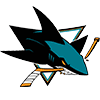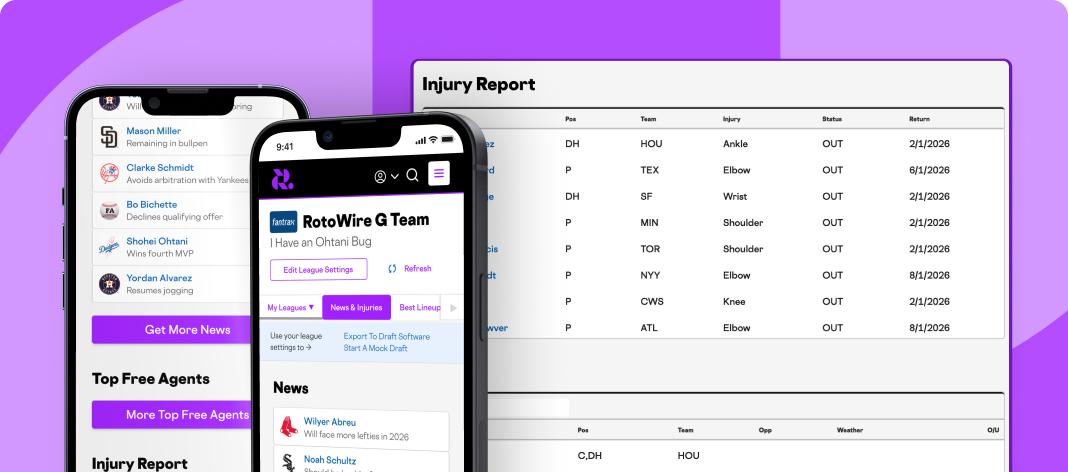Whether you're just dipping your toes into the water on Daily Fantasy Sports (DFS) golf or are a longtime fantasy golf guru, it's crucial to understand the fundamentals of the game. While many DFS sites have played catch-up with golf, DraftKings has served as a pioneer in that area for multiple years. For those transitioning from year-long leagues or general golf betting lines, many of the same strategies for finding good players and value plays apply to DFS golf, so congratulations on having a head start. For those hitting up DraftKings contests for your first go at fantasy golf, get ready for the enhanced excitement of the back nine come Sunday afternoons.
DraftKings not only offers typical four-round contests, referred to as "Classic," but weekend-only games, as well as individual-round contests. The latter can prove to be a lifeline if you find your lineup torpedoed after Friday, or even Thursday. These options are in play for both the PGA and European Tours.
It could be a little overwhelming when you go to DraftKings.com for the first time, trying to navigate and understand all the types of games. There is definitely a progression, and beginners would be best served starting with what are called "cash" games. Those generally involve similarly experienced players and offer a better chance of winning, though far less money than the top guaranteed prize pool (GPP) contests. Cash games can involve two players or thousands -- as we said, it can be a little overwhelming at first.
Whether you're just dipping your toes into the water on Daily Fantasy Sports (DFS) golf or are a longtime fantasy golf guru, it's crucial to understand the fundamentals of the game. While many DFS sites have played catch-up with golf, DraftKings has served as a pioneer in that area for multiple years. For those transitioning from year-long leagues or general golf betting lines, many of the same strategies for finding good players and value plays apply to DFS golf, so congratulations on having a head start. For those hitting up DraftKings contests for your first go at fantasy golf, get ready for the enhanced excitement of the back nine come Sunday afternoons.
DraftKings not only offers typical four-round contests, referred to as "Classic," but weekend-only games, as well as individual-round contests. The latter can prove to be a lifeline if you find your lineup torpedoed after Friday, or even Thursday. These options are in play for both the PGA and European Tours.
It could be a little overwhelming when you go to DraftKings.com for the first time, trying to navigate and understand all the types of games. There is definitely a progression, and beginners would be best served starting with what are called "cash" games. Those generally involve similarly experienced players and offer a better chance of winning, though far less money than the top guaranteed prize pool (GPP) contests. Cash games can involve two players or thousands -- as we said, it can be a little overwhelming at first.
You can leverage beginner contests against other newcomers for your first 50 entries, which keeps the experienced players -- sharks -- away while you build experience. DraftKings even helps out by indicating which games are "beginner" or "casual.
Keeping all that in mind, let's take a deeper dive into the world of DFS contest on DraftKings.
Game Types
Head-to-Heads: a straightforward match against one opponent, winner takes all (after the rake). You can play for free or start with as little as $1; a timeless format that's simple and fun.
Perfect for: beginners who want to keep it simple or players looking to build up their cash flow at a steady pace.
Double Ups, 50/50s and Multipliers: smaller events where the upside is capped but chances of winning are still sensible. In 50/50s, you win if you outscore half the total entries, earning you about $1.90 for every $1 entered (the missing $0.10 is the rake). You can double your entry fee in Double Up contests, but you'll need to finish better than just the top half. The same concept applies for Triple Ups, Quadruple Ups, Quintuple Ups, etc., which get increasingly more difficult to win, but come with greater rewards.
Perfect for: players looking for better payouts than head-to-head while having a better chance to cash than a GPP. It's a good middle ground between head-to-heads and tournaments.
Satellites and Qualifiers: smaller-scale feeder contests that reward winners with entries into future higher-stakes contests like the Fantasy Golf Millionaire GPP. There are various levels of buy-ins, from a few dollars to the hundreds.
Perfect for: players looking to get into big tournaments at a discount.
Tournaments (GPPs): top-heavy contests with big prizes for the top finishers, but not without added risk. A lot of risk. But potentially an enormous payoff.
Perfect for: players seeking the big payout while competing against the masses.
Beyond beginner contests, your choice of game should reflect your risk tolerance. If you love the notion of chasing the huge payday, tournaments might be your thing, but know that it comes with higher risk. If you want to improve your chance of winning more consistently over the long haul, head-to-head, 50/50s and double ups are your best bet, though the rewards are smaller. It's not uncommon to see both experienced and novice players enter multiple game types to increase upside while limiting their risk as much as possible.
Another Option
There's also:
Leagues: range from 3-100 players with varying prize pools depending on the number of entries. You can also create your own leagues to play against friends or challenge others from across the country. Overall, it's a good way to start with friends who you can trash talk on Mondays.
Perfect for: players who want to play against their friends or have control over the structure of their own league.
This is a wonderful option for gamers hoping to keep things "in the family" with friends, and it gives things the same feel of your old-time leagues. You can have individual weekly contests or even set up a season-long league (DraftKings does not tabulate season-long totals. But you can do that offline, offering, say, 10 points for the weekly winner, nine for second, eight for third and so on. And you add up all the points from the 30 or so tournaments you could run your league.)
Know the Rules
If you do nothing else before entering a contest, read the rules and know the scoring system. In DraftKings Golf, once you know the game types, the rules are simple: draft six golfers and stay under the $50,000 salary cap. The scoring system, however, typically gets overlooked. Golfers get points for:
Each hole: It's not stroke-play scoring; it's more like the Modified Stableford Scoring System. It goes like this: double eagle or better, 13 points; eagle, eight points, birdie, three points, par, half point; bogey, minus half point; double bogey or worse, minus one point. (There numbers could change for shorter games – weekend or individual-round, but the premise remains the same.)
Finishing position: whether a golfer finishes in the top 30 or 50 or another number, depending on the game
Arbitrary streaks and bonuses: A streak of three birdies or a hole-in-one, for instance
The reality here is that, on average, hole-by-hole points make up over 90 percent of a player's final fantasy points. Players who finish in the top 10 are usually the only exceptions. Points from finishing position become trivial after the top 10, and streaks and bonuses are rare and extremely unpredictable.
Clearly, the same score is not always equal. If your golfer plays even par with 18 pars, you get nine points. If he plays even par with five birdies and five bogeys, you get 16 ½ points. Risks are rewarded in here.
Making the Cut is Crucial
Knowing that over 90 percent of a player's final points come from hole-by-hole points, it becomes obvious that playing all four rounds instead of just two (by missing the cut) is a huge deal. This may be the most important thing to focus on when building a lineup – choosing six players with good odds of making the cut. Even if just two of your six players miss the cut, that's around a 15-20 percent loss of your potential point total.
RotoWire Lineup Optimizer
With the DraftKings community guidelines in place, the RotoWire Lineup Optimizer will no longer give you the pre-built "optimal" lineup for the week – it needs your input first. In the new setup, you'll need to lock in at least two players before letting the optimizer do its magic. This is a positive, as players will now use this more as a support tool and less as a crutch. Putting your own brain to work makes fantasy golf that much more rewarding and fun, and you'll be better off and more educated in the long run.
Injuries and Withdrawals
Both RotoWire and DraftKings are timely at labeling players who are injured or withdraw (WD) before the event, but it's good to double check before the event starts so your team isn't disadvantaged from the beginning. Starting a player returning from injury is risky because of the possibility of aggravating and withdrawing mid-event, so tread with caution.
There are more nuances you will learn as you play more. Look to RotoWire for weekly articles offering tips how to strategically build a lineup and specific golfers picked to do well in that week's event.





































